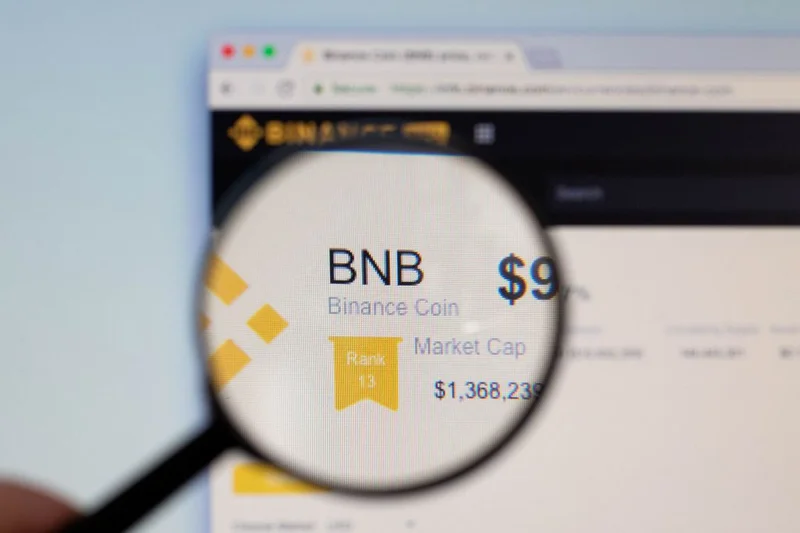Binance and Trump's Pardon: What We Know
Trump's Crypto Pardon: A Glimpse Into a Decentralized Future, or Just More Swamp Gas?
Okay, folks, buckle up. This whole Trump-Zhao-Binance saga is way more than just another Washington scandal. It's a chaotic, messy snapshot of the future colliding with the old guard. We're talking about the wild west of crypto, political pardons, and the blurring lines between personal gain and public interest. And honestly, it's got my head spinning – in a good way!
The headlines are screaming "corruption" and "abuse of power," and yeah, on the surface, it looks pretty shady. Trump claims he doesn’t know who Binance founder is - despite pardoning him days ago: ‘I’d rather not have you ask the question’. Elizabeth Warren is blasting Trump’s decision to pardon Zhao, calling it a "shameful abuse of power." Even some Trump supporters, like Joe Lonsdale, are saying he's been "terribly advised."
But let’s dig a little deeper, shall we?
The Crypto Revolution Meets the Political Machine
Here's the gist: Changpeng Zhao, or "CZ," the founder of crypto exchange Binance, got pardoned by Trump after pleading guilty to enabling money laundering. Now, here’s where it gets interesting. Binance reportedly helped the Trump family's crypto venture, World Liberty Financial, rake in billions. World Liberty’s new stablecoin product — a cryptocurrency whose value is designed to maintain a one-to-one value with the U.S. dollar — saw the value of its shares jump from $127 million to over $2.1 billion this spring after Binance stepped in, according to the Wall Street Journal. The technology that supports World Liberty’s stablecoin, USD1, was built by Binance and weeks after USD1 launched in March, an Emirati state-backed fund — MGX — used it to invest $2 billion in Zhao’s company, according to Bloomberg. The move by MGX reportedly provided World Liberty with the opportunity to net potentially tens of millions of dollars in interest. Trump, when questioned about it, played the "I don't know him" card, claiming it was all a "Biden witch hunt."
Now, is this a clear-cut case of quid pro quo? Maybe. But what if it’s also a sign of something bigger: the old political system struggling to understand, let alone control, the decentralized world of crypto? Think about it: crypto is all about bypassing traditional institutions, cutting out the middleman, and empowering individuals. The old guard, politicians who thrive on control and centralized power, are naturally going to resist that.
And that brings me to my core point: This isn't just about one pardon. It's about the clash between two fundamentally different visions of the future: one centralized and controlled, the other decentralized and, well, a little chaotic.
Imagine the printing press being invented – it democratized information, terrified the authorities, and ushered in a new era. Crypto, in many ways, is the printing press of finance. It's disruptive, it's messy, and it's definitely not going to be controlled easily.

Now, I’m not saying that money laundering should be ignored or that ethical considerations should be thrown out the window. Absolutely not. We need regulation, we need transparency, and we need to ensure that this technology is used for good. But knee-jerk reactions and fear-mongering won’t solve anything.
What's missing from this story? What are the long-term implications of this pardon on the crypto landscape? And more importantly, how do we ensure that the benefits of this technology are shared by everyone, not just a select few?
What I find fascinating is the almost desperate attempt to paint this as a simple case of corruption. It's as if the established powers are trying to shove this complex, multifaceted issue back into a box they understand, a box labeled "political scandal." But crypto doesn't fit in that box. It's too big, too fluid, too disruptive.
It's like trying to contain the internet itself.
And that's where the real opportunity lies. Instead of fighting against the tide, we need to understand it, navigate it, and harness its power for good. We need to educate ourselves, engage in thoughtful dialogue, and develop regulations that foster innovation while protecting consumers.
When I first read about this, I honestly felt a surge of excitement. Not because of the potential for corruption, but because it highlights the urgent need for a new framework, a new way of thinking about finance, technology, and governance.
The Dawn of Decentralization
This whole mess, this chaotic collision of old and new, is a sign of progress. It means that the decentralized future is not just a pipe dream, it's a reality. It's messy, it's complicated, and it's forcing us to confront uncomfortable truths about power, control, and the very nature of money. And honestly, I wouldn't have it any other way.
Tags: binance
Ergo: Can This Chair Really Fix Your Posture?
Next PostDuolingo Stock Dives: Price Drop, Reddit Reactions, and What We Know
Related Articles
